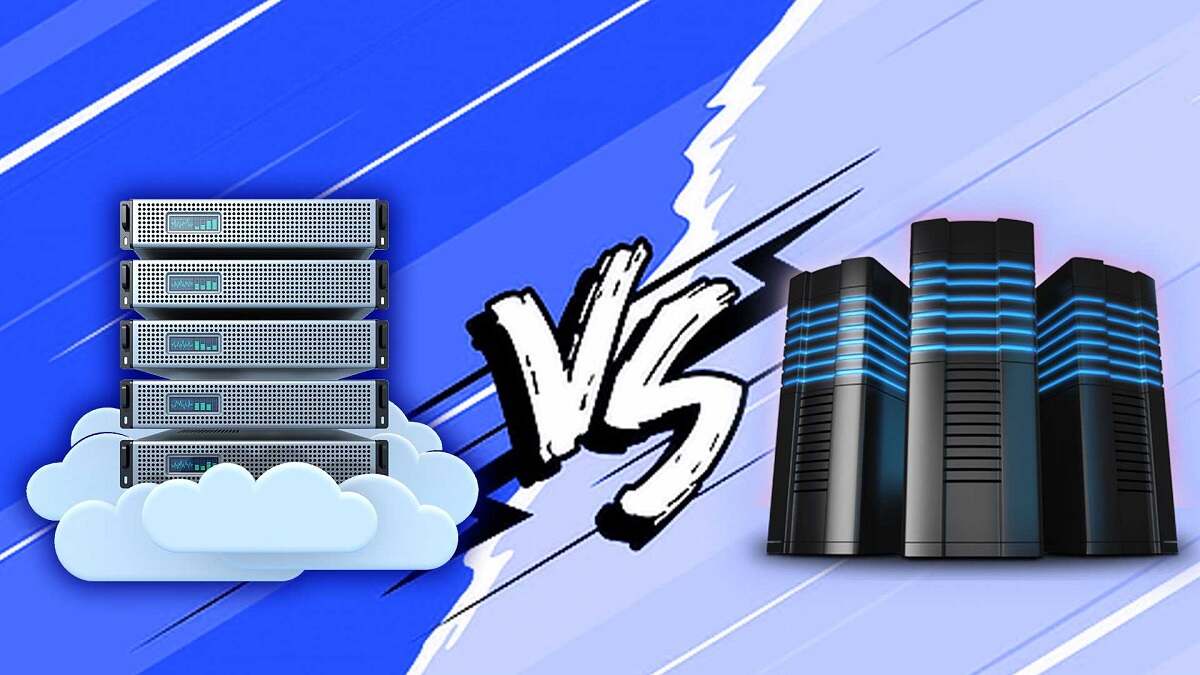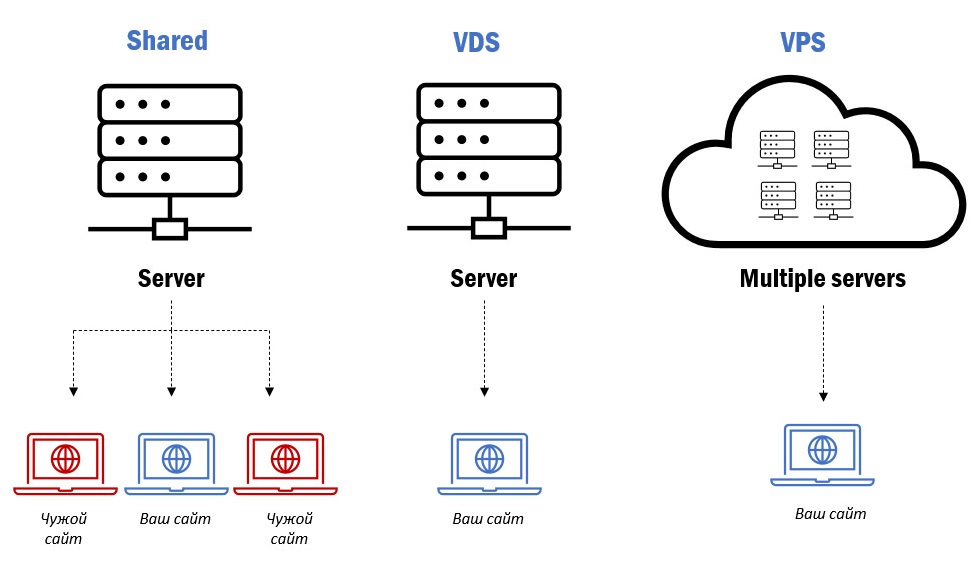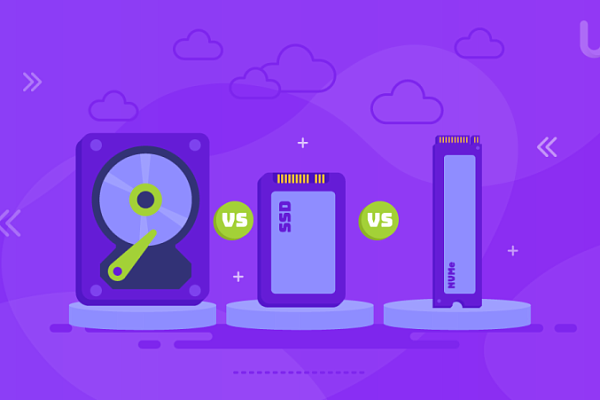VDS and VPS are often confused because they are similar concepts. A VPS (Virtual Private Server) involves virtualization at the OS level, while a VDS (Virtual Dedicated Server) is hardware virtualization. VDS and VPS are very similar in terms of customer experience and can be confused, but still, these are different technological concepts.
As a service, both are identical – the user receives a separate server in a virtual environment. Therefore, all the features and advantages of VDS apply to VPS as well. These are software-defined servers that can be customized to your needs, completely isolated from other users, and accessible via the Internet. They are functionally equivalent to physical servers with the same characteristics.

VDS/VPS is recognized as an alternative to shared hosting and physical servers.
Virtual hosting (shared) offers limited configuration and management capabilities, the user gets a certain capacity on a pre-configured server. Users cannot modify the allocated resources, install additional software, or change server settings. Your site is hosted on the same server as other sites. This can cause performance degradation during peak times due to resource utilization by other sites.
You do not have full access to the system, root user (administrator) rights are not available and you cannot install arbitrary software as only the provider can access it. In this case, the provider supplies the software and the client only has access to manage the content and send requests to the provider. This option is usually suitable for small projects with standard requirements and without the need for server customization.
A physical server has certain computing capabilities that often exceed the needs of an individual project. Purchasing a physical server requires significant capital investment, and the equipment itself may operate at half capacity. You can either install the server on your own premises, which may affect the safety and efficiency of the equipment, or use the rack rental service in a data center (Colocation), where your servers will be under reliable protection and create optimal conditions for work. There is also a dedicated server rental service (bare metal), but it is less common.
Virtual Dedicated Server VDS
VDS implies dividing one physical server into several virtual ones with the help of virtualization technologies. Each of them is in fact a separate infrastructural unit with its own OS, pool of resources, and full administrative access. The management of a dedicated server is performed by the server hardware. This approach has its advantages:
Advantages of VDS
-
Isolation. Each VDS is independent from other virtual servers located on the same physical host. This increases the level of server security - servers of other users cannot affect it.
-
Flexibility. VDS offers flexible server administration. Users have full administrator rights, and the ability to customize the software to their needs and install any applications. It is possible to customize the server for the tasks of a particular project.
-
High performance. Thanks to virtualization each VDS has a guaranteed amount of computing resources (CPU, RAM, disc space). This allows you to achieve good performance and efficiently use server resources.
-
Scalability. You can increase the amount of resources depending on the requirements of your project. This allows you to effectively manage the growth of your business and gives you the flexibility to adapt to changing requirements.
There are several disadvantages of the solution that limit its use in business.
Disadvantages of VDS
-
Host system resources. VDS involves sharing physical server resources between virtual servers. If the host system is overloaded or misconfigured, there is a risk that it will affect the performance of all VDSs on it.
-
Resource limitation. Each VDS has a limited pool of resources allocated to it. If a project requires high performance or a large amount of storage, VDS will not be able to meet the demand. In this case, a more robust type of hosting, such as a dedicated server, will be better.
Scenarios of using VDS
-
Website hosting. VDS provides a reliable and flexible solution for website hosting, especially in case of high traffic and increased performance requirements.
-
Development and testing. With VDS you can create a working environment for application development and testing.
Overall, VDS is a good solution, offering decent performance, control, and scalability for a relatively low cost.

Virtual Private Server VPS
VPS (Virtual Private Server) is a solution in which one physical server is divided into several virtual servers, and each one is managed by the host operating system. Each VPS has its own OS and set of resources that are completely isolated from the other servers.
Advantages of VPS
-
Independence. An important advantage of VPS is its independence from the surrounding working environment; other servers do not affect it. Users have full control over the server and can customize it to suit their needs, including choosing the right OS, applications, and amount of resources.
-
Flexibility and scalability. VPS allows you to scale resources (CPU, RAM, ROM) depending on the project requirements.
-
Dedicated resources. Each VPS comes with a guaranteed amount of computing resources that will not be used by other users simultaneously, providing the desired level of performance and high availability of the server.
-
Security. Since all virtual servers on the physical host are isolated from each other, security is high. All data and applications are inaccessible to users who have a virtual server running on the same physical server.
There are several disadvantages of VPS that limit its business use. They are identical to VDS.
VPS disadvantages
-
Resource limitations. Such a virtual server has limitations on the resources available to scale. If your project requires high performance, a large amount of memory, or other resources, then VPS will not be able to meet the demand, you may need a more powerful type of hosting.
-
Dependence on a host system. The performance of a VPS server is limited by the performance of the host system on which it runs. For example, when other virtual servers on the same physical host are experiencing high load, the performance of your VPS will be affected.
Scenarios of using VPS
VPS is widely used by both regular users and organizations of various sizes. The goals and objectives are similar to VDS users:
-
Hosting websites and blogging platforms. VPS provides a reliable and flexible solution for hosting online resources.
-
Development and testing. VPS allows you to create a low-performance but functional environment for application development and testing, providing greater flexibility in setting up the environment.
-
Online shops. VPS is useful for hosting e-commerce projects, which require a high level of reliability, security, and adaptability of the infrastructure under changing loads.
VPS solutions are relatively inexpensive, making them attractive for launching and maintaining online projects and applications.
What are cloud servers?
Cloud servers are the next step in the development of VDS and VPS technologies. They have a number of differences from their predecessors. For example, in technical terms, cloud servers represent a network of physical servers that are virtualized, and interconnected and provide greater flexibility and scalability. Cloud servers are more expensive than VDS/VPS, but have much higher fault tolerance and offer a pay-as-you-go model.
Another feature of cloud solutions is resource distribution. In other words, the infrastructure can be hosted on multiple physical devices or even in geographically disparate locations. This ensures high availability and fault tolerance. In the case of VDS and VPS, the server runs on a single physical machine.
Cloud users can flexibly and quickly modify the scope of services: create virtual machines (cloud servers) with the necessary features, install software, and easily configure the network topology, connecting virtual machines into a single and unique infrastructure in just a few clicks.
In general, VDS and VPS are forms of virtualization in which a physical server is divided into virtual servers, while cloud servers provide a flexible and scalable cloud computing infrastructure. The choice between the two depends on your requirements for performance, scalability, and a payment model.


